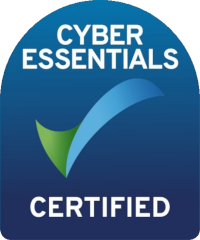BLOG
Balance or burnout: How to combat digital burnout in the charity sector
- Blog Tags
- Digital Support
- Wellbeing
- 14-07-2021
The rise of remote working and the WFH generation has risen, along with screen time. Social media and digital platform use have increased significantly within the last few years. As more charities and nonprofits transition to remote working, it is crucial to understand some simple ways to help avoid digital burnout. In some job roles, it is difficult to disconnect from social devices. These particular roles, and others, are often expected to be reachable and online for the majority of the working week. It is no secret that the time on our laptops and smartphones has soared up to 76% since the pandemic hit. Not only has the screen time on devices increased but so has employee digital burnout and fatigue within organisations.
'Burnout' as a single term refers to a state of mental, physical, and emotional exhaustion that is caused by chronic and excessive stress. According to Mclean Hospital, 'digital burnout' is defined as feelings of exhaustion, anxiety, depression, or diminished interest triggered by the overuse of digital devices.
It has been a rapidly growing concern in recent years with the rise of the digital age, and even more so since COVID-19 hit. Since the pandemic began, we have been trying to figure and process the new normality of daily life. The new normal has many more restrictions and rules that we as a society, are not familiar with. Socialising, sports, events, and travel have been more controlled and confined. This has impacted the population on a global scale. There have been soaring statistics of mental stress and increased rates of suicide and depression. The impact of the pandemic is an extremely difficult area to navigate as a collective, but as time moves on, we are beginning to move forward as science and technology enable us to administer vaccines, care, and support for those most vulnerable - and more importantly, getting back to the normal, happy and healthy way of life. We are all in this together.
When national lockdown first hit, naturally our screen time and device use have surged in a way to escape the mundane of the restrictions, stimulate our minds and fill in time on a daily basis. For some, this has been a fantastic way to stay interconnected, volunteer online, start new business ventures and, find new career opportunities. For others, this has contributed to a digital overload fueled by boredom and fatigue.
Each individual is likely to have experience digital burnout on some scale in their lives as the technological and digital age continues to expand, however, there are many fantastic ways to combat digital burnout and reduce your screen time today.
Set healthy boundaries. The constant ping of notifications and instant messages can allow you to be contactable and accessible every hour of the day, but it does not need to be that way! Set boundaries throughout the day to check emails and messages and allocate time to respond. Not every single email or message is urgent which means you do not need to respond straight away. Responding immediately may distract you from your workflow state. Set healthy boundaries to give yourself more mental space and clarity as you prioritise your day-to-day work schedule and activities.
Cultivate healthy morning and evening habits. We are all guilty of scrolling on social media before bedtime or as soon as we wake up, which may have more detriments than we think! The blue light emitted by your smartphone or laptop restrains the production of melatonin, which is the hormone that controls your sleep-wake cycle (aka circadian rhythm). This makes it difficult to fall asleep and even wake up the next day. By cultivating a no-phone habit before bedtime, you can increase your total amount of REM sleep and wake up feeling more refreshed.
Check-in with yourself before you check your notifications. By figuring out exactly how you're feeling mentally, physically, and emotionally before diving straight into work, you can avoid burnout and overwhelm before it gets too late within the day. This is an extremely helpful way to aid your productivity levels in the long term. It's totally okay to take a breather during a busy schedule and have a break from screen time. Research has suggested taking a 5-minute break every hour away from a screen to refocus your eyes, change your posture and even do some simple stretching. This helps avoid aches, pains and keeps your body and mind energised!
Bring back face-to-face communication where possible. Staying in touch with people digitally through platforms such as Zoom or Microsoft Teams is a fantastic way to stay connected, especially in times of social distancing and limited travel. However, it is not the same as meeting someone face-to-face. Where necessary and safe to do so, organise meetings with colleagues and friends in person instead of online. When doing this, put your phone away and be fully present. As a society, we need that sense of connectedness and community now more than ever.
3) Have a digital declutter. Doist describes a digital declutter as 'an audit of your entire digital life, followed by removing or reorganising everything into a simpler, more secure, and more backed up the system'. This allows you to prioritise the important elements in your life. With the notion of stepping back and reflecting on your digital and social use (including your messy desktop!), you can cull all the areas that are out of use or expired. A digital declutter can work wonders on the mind and cut down distractions, allowing you to free up more time and space for other things.
Every small action you take towards reducing your digital excess will help to reduce digital burnout and overload symptoms. These small steps are vital in contributing to your mental, emotional, and physical wellbeing at work and in your personal life. As we move through unprecedented times, let's show kindness to ourselves and others as we navigate through the new normal.
Charities and their employees are crucial in supporting all parts of our society... now more than ever. At Energise Technology, digital is at the heart of everything we do. We are offering free digital support and discovery sessions to charities who are struggling with business continuity right now and are looking for advice to continue running their services. If you or your organisation are looking for support, please get in touch to see how we can help you.

Lucy Greenwell
Marketing ManagerContact us
If you'd like to know more about how we can help your organisation, please get in touch.
Subscribe to our newsletter
About Us
Innovative digital solutions for education - supporting policy, leadership, delivery, and learning

Useful Links
Contact Us
Trent Lodge
Stroud Rd
Cirencester
GL7 6JN
0117 4573283